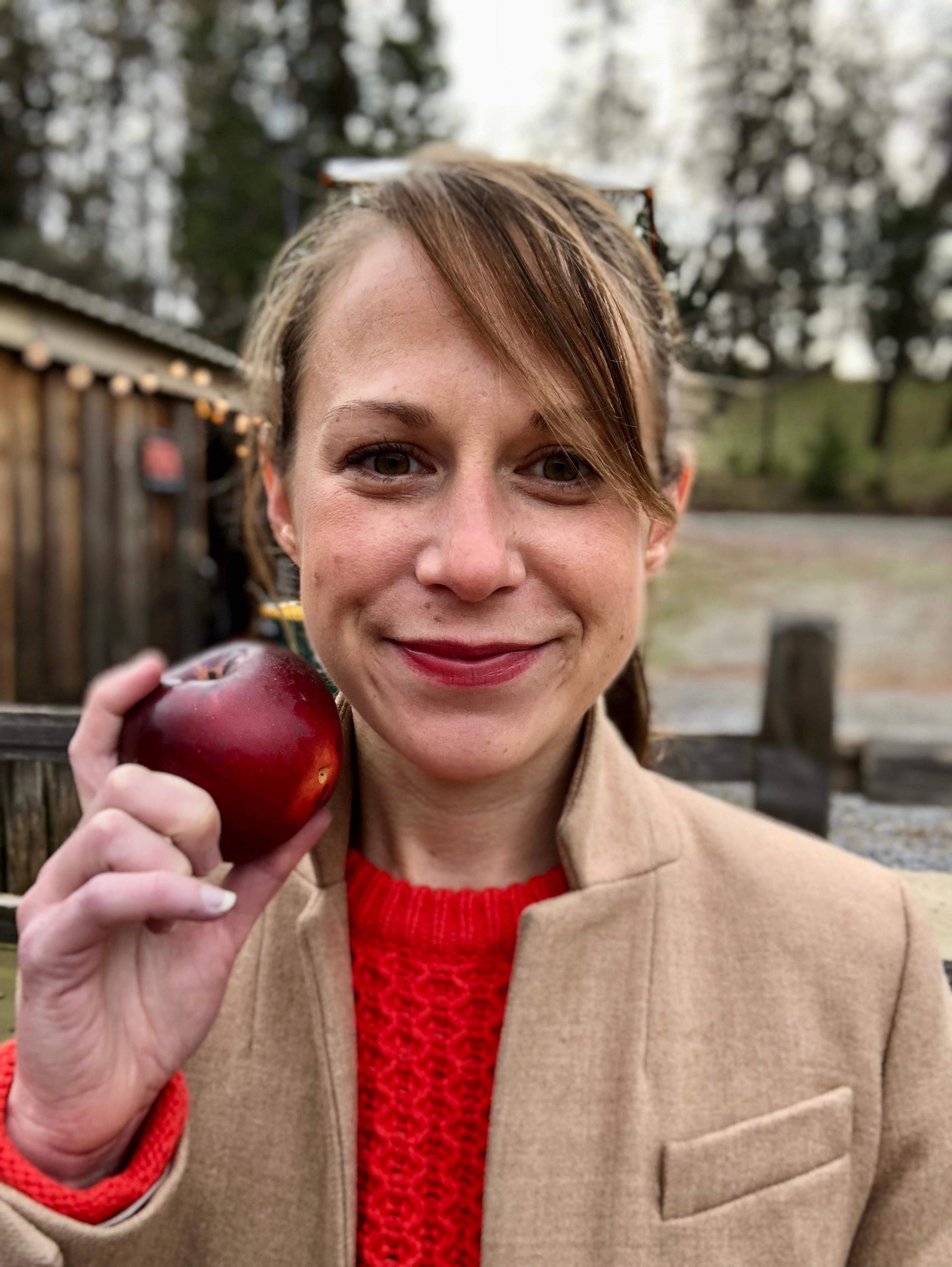
Words matter. Research shows that the language we use to describe the world shapes the way we think about that world, and from there the consequences continue, dominos toppling one after the other: our thoughts affect our actions, our actions affect our lives and the lives of others. When we’re talking about bodies and food, the language we choose can have a lasting and even life-changing impact. It can mean the difference between enjoying a meal and suffering through it; between self-confidence and self-doubt; between a feeling of acceptance and one of alienation.
Because words are so powerful, Equip recently released its Media Guidelines, which outlines how journalists, members of the media, and content creators can talk about bodies, food, eating, and eating disorders without reinforcing stereotypes or elevating harmful beliefs (read more here).
Though media and content professionals have a larger audience than most of us, the words we all use in our daily conversations—and our own internal monologues—matter, too. This is always true, but even more so when speaking to somebody who is struggling with or in recovery from an eating disorder. Even if you enter a conversation with the best of intentions, wanting nothing but to support your loved one, you might use language that is unintentionally harmful. That’s because potentially harmful phrases aren’t always obvious, and most of us have spent our lives steeped in a society that normalizes unhealthy and damaging beliefs.
For that reason, we’re sharing the same guidelines we provided to the media on what words and phrases to avoid, and what you might consider saying instead:
Avoid: “They lost x amount of pounds,” “They ate x amount of calories,” etc.
Using specific numbers about weight, calories, nutrition, and body measurements can be triggering to those vulnerable to eating disorders. Try not to talk about other people’s bodies or diet altogether if you can (there’s so much more to say about a person!), and if you must refer to a body change or something a person ate, avoid specific numbers whenever possible.
- She made a lot of new friends during her first semester at college.
- I ate too many cookies and now my stomach hurts.
- Aunt Debbie lost some weight because she had a parasite.
Avoid: “Earn your calories,” “reward yourself,” “I deserve this dessert,” etc.
Exercise should not be viewed as a compensatory behavior for eating, and food should not be considered a prize for physical exertion. Humans need to eat in order to stay alive, and also eat for a variety of other perfectly valid reasons: comfort, culture, taste, socializing, etc. Food never needs to be earned, and verbalizing this belief encourages unhealthy eating behaviors. Focus instead on the joy of eating, or how eating something will make you feel afterward.
- There’s something about eating corn off the cob that makes it taste even better.
- I make this amazing protein oatmeal that gives me so much energy for my morning jog.
- It’s so fun to eat fried chicken out of a bucket—shouldn’t everything be served like this?
Avoid: “Guilty pleasure,” “cheat day,” “junk food,” etc.
Food has no morality. There are no “good” foods or “bad” foods, and categorizing them that way can encourage an unhealthy, rigid relationship with eating. There’s so much else to say about a food beyond applying judgment to it; you can focus on flavor, emotional connection, meaning, how it’s prepared—the list goes on.
- What did you do to make these brownies so fudgy?
- Eating a ripe nectarine always takes me back to summertime as a kid.
- Wow, the basil on this pasta is so fresh!
Avoid: “The obesity epidemic,” “obese,” “obesity,” etc.
We believe the word “obesity” to be harmful, as it’s tied to the flawed measurement of BMI and loaded with negative connotations. In fact, a growing number of experts in the field (including Equip) are choosing to censor the term as “ob*sity,” which you might consider as well. Instead of using this word, choose factual language to describe people’s bodies, or use a person’s preferred terminology (for instance, some people self-identify as “fat,” seeing it as a body neutral descriptor like “short” or “brown-eyed”). Or better yet, just don’t describe people’s bodies at all!
- It would be nice if more people in larger bodies were represented on TV and in movies.
- They are a fat activist.
- The idea of the ob*sity epidemic is increasingly being called into question.
Avoid: “Bikini body,” “best body,” “beach body,” etc.
These phrases reinforce the untrue idea that only those who look a certain way (aka thin) can wear or do certain things—including putting on a bikini on warm days. If you have a body at the beach, you have a beach body; if you choose to wear a bikini, you have a bikini body. Instead of using phrases that implicitly encourage weight loss, emphasize how someone might want to feel in these circumstances instead. Examples include:
- Does going bathing suit shopping make you feel excited for the season?
- The bright colors in this bikini make me feel so energized.
- I feel strong and energized after jumping in the water.
Avoid: “Thunder thighs,” “muffin top,” “cankles,” “problem areas,” etc.
Outdated phrases from the tabloid era continue to appear in the media and our daily conversations. These mean-spirited phrases reduce individuals to their body parts and can make people hearing them feel self-conscious about their own bodies. Instead, refer to body parts by their proper names and avoid any and all pejorative labels.
- I need to remember to put sunscreen on the back of my thighs.
- I like the way this dress looks with a belt around my hips.
- My shirt shrunk in the dryer so now it shows my stomach—new crop top!
We hope that by sharing these guidelines with everyone, not just journalists, we’ll provide people with the knowledge they need to have inclusive, supportive, and productive conversations. If you’re used to saying some of these phrases or words, it might take a bit of an adjustment to remove them from your vocabulary—but it will be worth it, not only for those in your life who are vulnerable to eating disorders, but also for you.
Citations:
- Lodge, J et al. “Children's self-talk under conditions of mild anxiety.” Journal of anxiety disorders vol. 12,2 (1998): 153-76. doi:10.1016/s0887-6185(98)00006-1
- Maria Richter, Judith Eck, et al. Do words hurt? Brain activation during the processing of pain-related words, PAIN, Volume 148, Issue 2, 2010, Pages 198-205, ISSN 0304-3959, https://doi.org/10.1016/j.pain.2009.08.009.
- Tabibnia, Golnaz et al. “The lasting effect of words on feelings: words may facilitate exposure effects to threatening images.” Emotion (Washington, D.C.) vol. 8,3 (2008): 307-17. doi:10.1037/1528-3542.8.3.307








